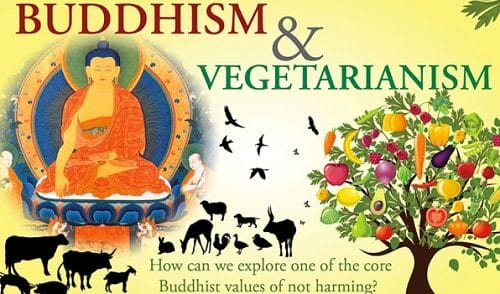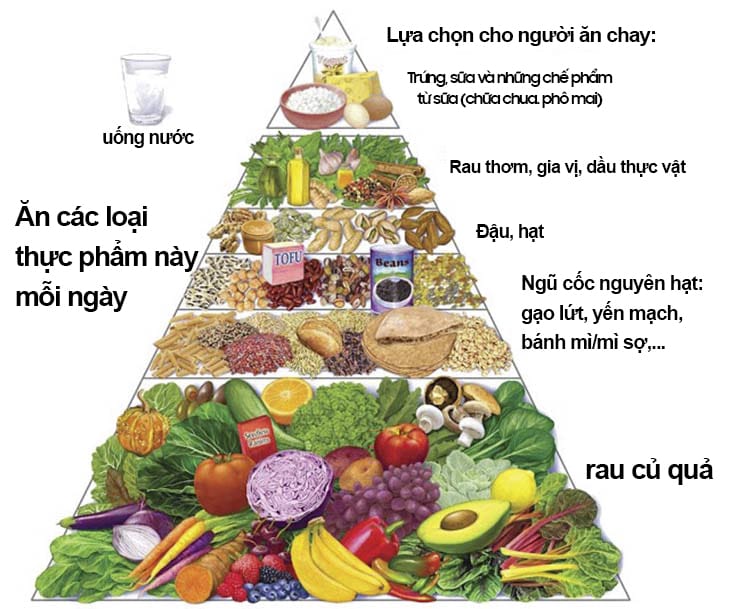What are the 10 vegetarian days of the month?
These are the 1st, 8th, 14th, 15th, 18th, 23rd, 24th, 28th, 29th, and 30th days of the lunar month. According to Buddhist doctrine, observing 10 vegetarian days in a month is a secret method bestowed by the Supreme Being during the Third Universal Redemption and is considered to have positive yang energy. These 10 days correspond to the days when 10 Buddhas attained enlightenment:
- The 1st day is when Ding Quang Buddha attained enlightenment.
- The 8th day is when Yao Shi Buddha attained enlightenment.
- The 14th day is when Pu Xian Bodhisattva attained enlightenment.
- The 15th day is when Amitabha Buddha attained enlightenment.
- The 18th day is when Guan Yin Bodhisattva attained enlightenment.
- The 23rd day is when Da Shi Zhi Bodhisattva attained enlightenment.
- The 24th day is when Di Zang Wang Bodhisattva attained enlightenment.
- The 28th day is when Pi Lu Tuo Na Buddha attained enlightenment.
- The 29th day is when Yao Yang Bodhisattva attained enlightenment.
- The 30th day is when Shi Jia Mo Ni Buddha attained enlightenment.
Where does the tradition of observing 10 vegetarian days come from?
In Buddhism, vegetarianism (abstinence from meat and animal products) is seen as a way to cultivate compassion and equality towards all beings, as well as to reduce the negative karma of killing. This practice brings spiritual purity to Buddhists.

There are two main forms of vegetarianism: lifelong voluntary vegetarianism, which involves a purely vegetarian diet, and periodic vegetarianism, which involves observing vegetarianism on specific days of the month or year.
The number of vegetarian days observed depends on an individual’s faith and circumstances. Buddhism never imposes rules or forces its followers to practice vegetarianism. In reality, Buddhists often choose to observe 10 vegetarian days a month, also known as “thập trai.”
According to the Buddhismtoday website, the origin of the 10 vegetarian days is related to the first method of Buddhist practice, which involves observing a vegetarian diet on 10 days each month. These days are evenly distributed throughout the week to remind practitioners of the importance of regular spiritual practice and cultivating compassion, thus refraining from killing animals for food.

Everything in life is interconnected and interdependent. The 10 vegetarian days, including the 30th day of the month, serve as a reminder for Buddhists to reflect on the passing month and strive to live more meaningfully in the new month ahead. The end of one month marks the beginning of another.
The Significance of Observing 10 Vegetarian Days
According to the “Bodhisattva Earth Store Bodhisattva King Sutra”: “On the ten days of fasting, the heavy and light sins are gathered together. If, during these ten days, one fasts before the Buddhas and Bodhisattvas, the statues of the holy beings, and recites the ‘Bodhisattva Earth Store Bodhisattva King Sutra’, not only will one’s own calamities be eliminated, but also within a radius of 100 leagues (4,000 miles) to the east, west, south, and north, there will be no calamities.”

Observing 10 vegetarian days corresponds to the 10 days when the 10 Buddhas attained enlightenment. On these days, one receives the precious Dharma teachings. In worldly terms (conditioned existence), this practice cultivates compassion, brotherhood, patience, joy, and lessens illnesses.
- On the 1st day, fasting and reciting the name of the Buddha of Light eliminates sins and obstacles.
- On the 8th day, vegetarianism and reciting the name of the Medicine Master Buddha eliminates sins and increases merit.
- On the 14th day, vegetarianism and reciting the names of the 1,000 Buddhas eliminates evil and generates goodness.
- On the 15th day, the gods of the Four Heavenly Kings descend to the mortal realm to inspect the good and evil deeds of humans. Fasting and reciting the name of Amitabha Buddha on this day eliminates killing, cultivates wisdom, and brings peace and joy.
- On the 18th day, reciting the name of Ksitigarbha Bodhisattva and observing a vegetarian diet eliminates sins and increases longevity.
- On the 23rd day, fasting and reciting the name of Mahāsthāmaprāpta Bodhisattva eliminates sins and killing.
- On the 24th day, Buddhists observe a vegetarian diet and recite the name of Vairocana Buddha to eliminate sins, destroy afflictions, and increase wisdom.
- On the 29th day, Buddhists observe a vegetarian diet and recite the name of the Medicine King Bodhisattva to eliminate diseases, evil deeds, and increase good deeds.
- On the 30th day, Buddhists observe a vegetarian diet and recite the name of Shakyamuni Buddha to increase merit and achieve Bodhi.
How to Practice Vegetarianism Correctly and Ensure Proper Nutrition
Choose a suitable vegetarian style for your situation
To ensure proper and adequate vegetarianism, it is important to first choose a vegetarian style that suits your physical condition.
For children, the elderly, pregnant and lactating women, it is advisable to adopt flexible vegetarian styles, such as ovo-lacto vegetarianism, alternating vegetarian and non-vegetarian days, or having one vegetarian meal and one non-vegetarian meal per day.
Other individuals with good physical health can choose a vegetarian style that suits their personal needs.
Arrange a balanced diet and schedule meals appropriately
To practice adequate and proper vegetarianism, it is necessary to arrange a balanced diet, a nutritious diet, and appropriate meal times and quantities. Meals should be diverse and include various vegetarian dishes that mimic meat-based dishes. For example, breakfast should consist of energy-rich but easily digestible foods. Lunch and dinner should include dishes that provide adequate nutrition and improve flavor. Pay attention to balancing protein-rich vegetarian foods and other nutrients to ensure a well-rounded diet.

Select ingredients carefully
Additionally, when preparing vegetarian meals, it is important to carefully select ingredients and use cooking methods such as boiling, steaming, and blanching.
Find and supplement additional nutrients
If you don’t know how to create a diverse diet, your body may lack essential nutrients. Therefore, you need to know how to combine different foods, such as eating porridge with mung beans, milk, and cereals, instead of eating a single dish.A daily diet should include four essential nutrient groups:
- First, carbohydrates from rice, potatoes, corn, wheat, and other cereals.
- Second, protein from various types of beans.
- Third, fats from oil-rich seeds such as soybeans, sesame seeds, peanuts, sunflower seeds, and gac seeds.
- Fourth, vitamins and minerals from various vegetables, tubers, fruits, and other plant-based sources.

Suggested Vegetarian Menu
- Breakfast: Vegetarian beef ball noodles, fried vermicelli, peanut butter sandwiches, steamed buns, or vegetarian hot and sour soup.
- Mid-morning snack: Yogurt, strawberries with milk, or fruit.
- Lunch: Rice, tofu in tomato sauce, green cabbage soup, and fruit for dessert.
- Afternoon snack: Sweet potato or a glass of soy milk.
- Dinner: Rice, bitter gourd stew, Chinese cabbage soup, or noodles with green squash and mushroom stew…
Regardless of the type of vegetarianism you choose, ensuring adequate and proper vegetarianism should always be a top priority.
Web design and development expert with over 15 years of experience. I have helped hundreds of businesses develop comprehensive web development plans to ensure sustainable growth and profitability.
































